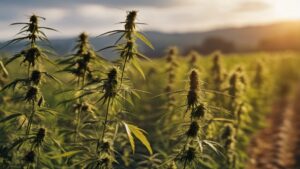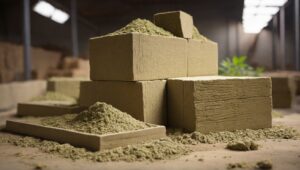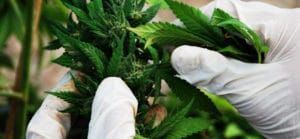
Hemp makes a premium candidate for phytoremediation due to high biomass, long roots and a short life cycle. Hemp also has a high capability to absorb and accumulate heavy metals (HMs) lead (Pb), nickel (Ni), cadmium (Cd), zinc (Zn), and chromium. Hemp was planted in the contaminated soils of the Chernobyl disaster site in the Ukraine, and it was revealed that the plant can take up considerable amounts of HMs from contaminated soil thanks to high biomass and deep roots. Another reported study elected hemp as the best bioaccumulator of Cd out of eight potential energy crops. In the future, the brownfields redevelopment industry may want to consider phytoremedial hemp as the starting tool for urban improvement, but progress does not stop here.
Hemp phytoremediation is a strong first step in the process of brownfields redevelopment. Once the soil is detoxified, and the hemp is cleared,
Hemp’s Environmental Impact on Heavy Metals and Other Contaminants through Phytoremediation
Hemp’s environmental impact is a positive one, as it can heal contaminated soil and water. Hemp has some profound healing effects on your body as well. Consider that hemp can also make an ideal fiber (better than cotton) and oil (with the perfect balance of Omegas); one might ask – “what can’t hemp do?”
For starters, hemp can’t be illegal anymore – and we are blessed with changing policies worldwide, making hemp mankind’s most trusted ally from the plant kingdom.
Hemp is an ideal choice for phytoremediation because it’s fast growing, has deep roots, and is unaffected by the toxins it accumulates from the soil and the air. While hemp is cleaning soil, it also acts as a carbon sink to reduce greenhouse gases.
Cadmium, a heavy metal, is one of the major pollutants in soil, and hemp’s environmental impact has demonstrated that it can eliminate this pollutant. Certain types of hemp have been studied and recommended for phytoremediation of cadmium so we can remove this heavy metal from our soils.1 With thousands of contaminated sites in the United States alone, hemp can prove an efficient and eco-friendly way to clean up our industrial mess.
Hemp Testing and Consuming Only Organically Certified Hemp
If you consume hemp products, it’s important to know where the hemp came from, considering you may be consuming toxins that a hemp plant just soaked out of the ground. This is especially applicable when hemp is concentrated into oil or products like CBD. The CBD concentrate can ultimately contain more toxins than the plant itself. The hemp you want to use for medicine and food should be grown at an organically certified farm, as well as tested for toxins, heavy metals, and other contaminants






